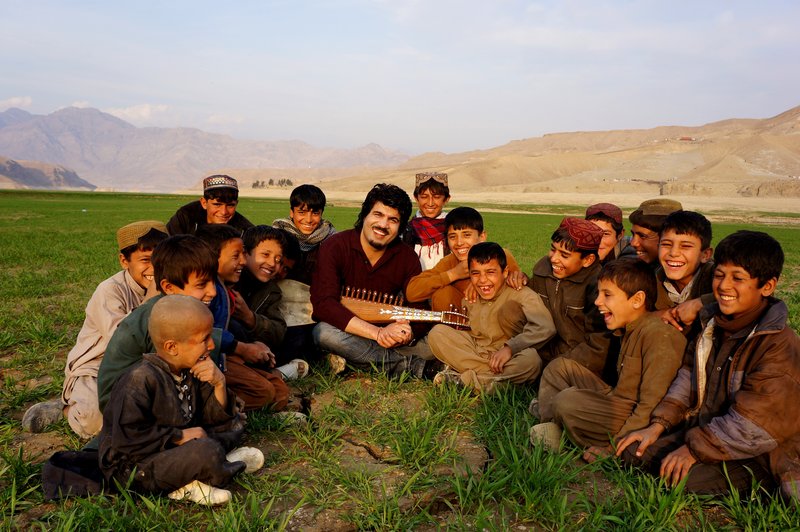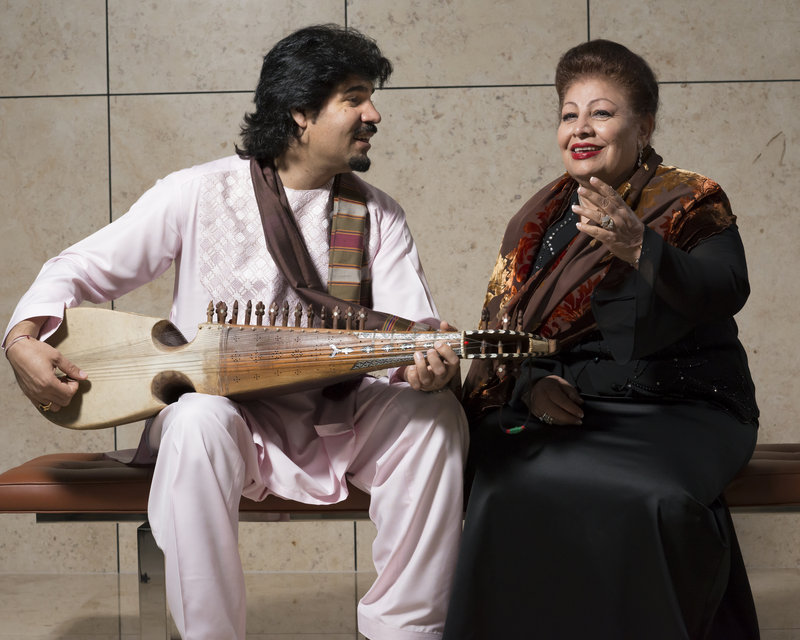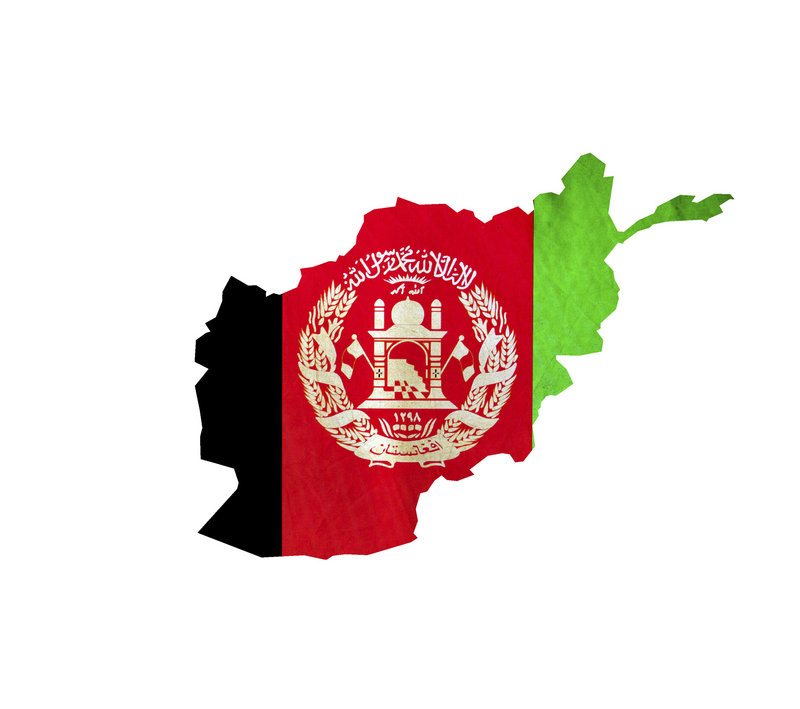It began with a trip to the farmers market.
Aimee Petrin, executive director of the performing arts organization Portland Ovations, was entertaining a friend from the Vermont National Guard who had just returned from duty in Afghanistan.
Petrin wanted to show him the best of Maine, and took him to the Crystal Springs Farmers Market in Brunswick. By chance, she introduced him to a local vendor from Afghanistan, who bakes wonderful bread.
“I brought him there not even thinking about it, and they just started talking,” Petrin said of her friend and the baker.
“They had this whole conversation about how beautiful the landscape is, how great the weather is and how kind the people are,” she said. “I realized in that moment that I had no idea about Afghanistan. My limited knowledge of the country was defined through what I knew about the war. I did not understand the people or the culture in any real way.”
That was two years ago. In the time since, Petrin has learned much about Afghanistan, and this week will share some of her knowledge through an outreach effort built around the residency of a touring group of musicians known as Voices of Afghanistan.
Portland Ovations hosts the musicians this week. They arrive Tuesday, and stay through March 17.
The ensemble performs a concert at 8 p.m. Saturday at Hannaford Hall at the University of Southern Maine in Portland. All week leading up to the concert, the musicians will gather with the local Afghan community and share stories and music in Portland schools and colleges across the region.
In addition, writer and community organizer Reza Jalali will host a pre-concert lecture, “Issues of Gender in Muslim Culture,” at 7 p.m. Saturday. He will read from the book “New Mainers: Portraits of Our Immigrant Neighbors” and present an excerpt from his play, “The Poets and the Assassin,” which examines the history and contemporary lives of women in Iran.
Voices of Afghanistan represents the richness and diversity of Afghan musical traditions, and features some of the country’s finest instrumentalists. It’s fronted by female singer Farida Mahwash and led by Homayoun Sakhi, who is considered a virtuoso on the rubab, an Afghan lute that dates back 2,000 years.
The ensemble performs traditional acoustic music using such instruments as the tabla, harmonium and tula in addition to the rubab.
Jalili, who is from Iran and works as coordinator of multicultural student affairs at USM, said the residency and concert provide an opportunity for the Muslim community and others to come together to share musical traditions and create cultural understanding.
“To judge a people or a nation, it’s important to learn about their culture and art, and that includes music,” Jalali said. “In the case of Afghanistan, I think it’s fair to say that the mainstream media has dehumanized the Afghan people with all these terrible stories about the Taliban, of schools being burned and the stoning of women. This coverage has come to dehumanize this nation to the extent that we might think they do not have any art or culture.”
Despite its political and social problems, Afghanistan does indeed have rich cultural traditions that date to the Persian Empire. Voices of Afghanistan offers a small sample, he said.
‘A FAMILY TRADITION’
Sakhi, Voices of Afghanistan’s band leader, was born in Kabul in 1976, and began playing music at age 8.
“I was born in a family of musicians,” he said in a recent phone interview from him home in California. “My father and my grandfather, they were all musicians. This is a family tradition.”
Sakhi’s father was a disciple of a musical icon whose lineage dates to the mid-1800s, when an Amir of Kabul brought classically trained musicians from India to perform at his court. The Amir gave the musicians special treatment.
Sakhi began learning the rubab when he was 10, studying with his father in a master-apprentice relationship.
The rubab originated in central Asia, and belongs to a family of double-chambered lutes. It was used to play a devotional style of Afghan music.
The instrument has evolved over 2,000 years, and today has three strings for melody made from nylon and a dozen or so steel strings. It has a heavy wooden body, with goat skin stretched across the body’s open face. Melody strings pass through a bridge made from a ram’s horn.
The classical technique derives from Indian and Persian influences, and is sometimes compared to claw-hammer banjo picking, resulting in parallel melodies.
Sakhi’s story demonstrates the degree of commitment required to pursue music during times of war. Early on, during his teen years, political leaders controlled and censored music. Later, music was banned altogether.
In 1992, Sakhi and his family moved to Peshawar, Pakistan, a common landing spot for Afghan refugees following the Soviet invasion of their country in 1979.
In Peshawar, Sakhi developed a following, and made regular appearances on radio and TV. He opened his own music school, and began learning new skills and techniques from other musicians who lived and worked there.
Sakhi intended to return to Afghanistan and resume his career, but instead came west to the United States, settling in the mid-Atlantic in 2001 and later in California. He and his group are now based in Fremont, near San Francisco, home to one of America’s largest communities of Afghanistan refugees.
Sharing culture through music connects Sakhi with his homeland in meaningful ways, he said.
“Music is universal,” he said. “People from different cultures and different backgrounds can connect with music. That is why I love what I do. I believe that I am building bridges across cultures.”
Sakhi’s efforts are not simply about building bridges between Afghanistan and Western cultures. Where he lives in California, there are musicians from across the world in close proximity.
He routinely performs and records with a global network of musicians, who infuse his musical traditions with theirs. The experimentation and collaboration leads to new ideas and exchanges and the continued evolution of music, he said.
MAINE IS HOME
Southern Maine is home to about 300 Afghan refugees, Jalali said, most of them in Portland. They arrived beginning in the early 1980s following the Soviet invasion. As did Sakhi, many of the early immigrants moved to California.
There are now many second-generation immigrants in Maine, and they comprise a thriving community that has its own mosque, traditions and social networks.
A member of that community, Nasir Shir, said the Voices of Afghanistan residency is a big deal. The community has organized dinners and arranged for prayers to welcome the musicians to Portland.
“This is their first time to Maine, and we want to make sure they feel welcome here,” he said.
Shir hopes this concert will help dispel the negative image of Afghanistan as it is often portrayed on the news. The perception of the country has improved in recent years, thanks to exposure in the Olympics and other international events.
The concert represents another opportunity.
“Hopefully, people will hear this music and will relate that Afghanistan is more than what the news portrays. This will help clear up some of those images,” Shir said. “For those Americans that hear the music, they will see that the country has more culture than what they see on the news.”
“There is a great sense of excitement about this concert,” Jalali said. “And it’s not just among the Afghans. You don’t have to be from Afghanistan to appreciate this music. It’s not often we get an ensemble of Afghan musicians playing in Portland, so it’s a unique opportunity.”
Petrin hopes the concert and community outreach programs provide a platform for learning and cultural exchange.
“It’s obviously true that people connect through music,” she said. “Even if you do not understand the lyrics, there is so much energy and passion and that sense of human spirit that comes through the music.”
Staff Writer Bob Keyes can be contacted at 791-6457 or:
bkeyes@pressherald.com
Twitter: pphbkeyes
Send questions/comments to the editors.






Success. Please wait for the page to reload. If the page does not reload within 5 seconds, please refresh the page.
Enter your email and password to access comments.
Hi, to comment on stories you must . This profile is in addition to your subscription and website login.
Already have a commenting profile? .
Invalid username/password.
Please check your email to confirm and complete your registration.
Only subscribers are eligible to post comments. Please subscribe or login first for digital access. Here’s why.
Use the form below to reset your password. When you've submitted your account email, we will send an email with a reset code.